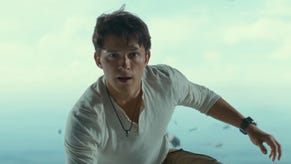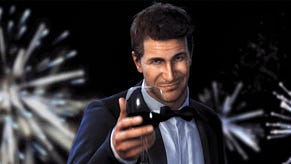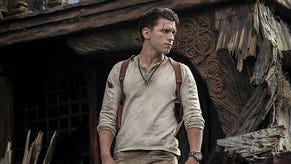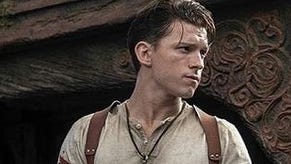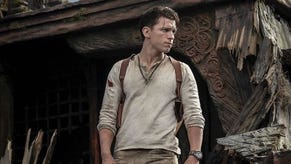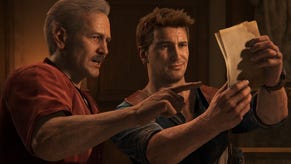Uncharted: Drake's Fortune
Playtime with Naughty Dog's new puppy.
Might as well get it over with. Yes, Uncharted: Drake's Fortune is a bit like Tomb Raider. But then Tomb Raider nicked a load of ideas off Indiana Jones. Which was inspired by '50s TV adventure serials, which were inspired by films like Gunga Din, which was inspired by a poem written in the previous century, which was... There's probably a cave painting somewhere of a stick figure being chased by a giant boulder into a pit of spikes, trying to make sure they don't lose their hat or puncture their breasts.
There's being lazy and derivative, then there's taking old ideas and making them fresh. It's about remaining true to what makes the original concept work, adding your own input to create something new, improved and unique. The film of Gunga Din is a lot more exciting than the boring old poem. The Indiana Jones films are funnier than the '50s TV adventure serials. Lara Croft has a better chest than Harrison Ford, and so it goes on.
Or does it? Has Naughty Dog got what it takes to move the action-adventure genre forward? The studio certainly did great things for platforming with Crash Bandicoot trilogy. It was followed with the superb Jak and Daxter games. Later instalments saw Daxter's name dropped from the title, GTA elements added and the series going in a darker direction. However, Naughty Dog's trademark cartoon style remained throughout.
Getting real
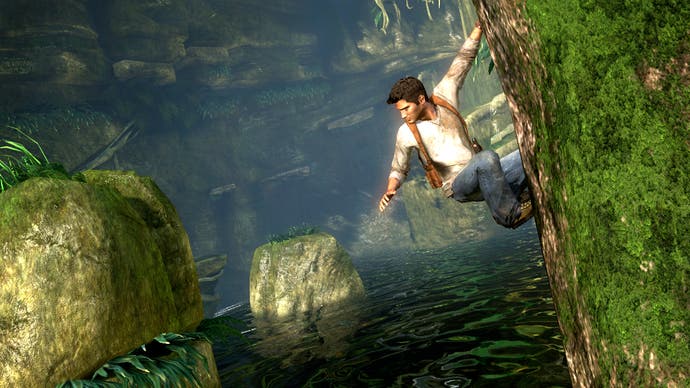
Uncharted: Drake's Fortune is different. You won't find any wumpa fruit, furry friends or double jumps here. The characters are human. The environments are realistic. The weapons are sniper rifles, grenades and AK-47s, not chunky laser beam blasters. But, as game director Amy Hennig explains, there are similarities with Crash and Jak.
"Uncharted is very much in the same spirit as those games," she says. "Larger than life action-adventure has been part of the Naughty Dog tradition from the beginning. It's about the power of the hardware now being able to express that realism. It doesn't feel like a big sea-change, but it was a new challenge."
There's certainly been a big shift in visual design. Hennig says they're calling it "stylised reality", explaining, "We're not going for photo-real, because we find that creepy ourselves. In a game development environment where so many people are going for this de-saturated, grim reality, we wanted to get the feel of a pulp adventure. There's a saturated, romantic quality to the whole thing."
This ties in with the other concept Naughty Dog has developed for Uncharted: "emotional realism". The idea is you care about the characters because you believe in them. That includes the game's hero, a modern-day treasure seeker called Nathan Drake. During his adventures he meets many allies and enemies who play key roles in the storyline.
Isn't it iconic?
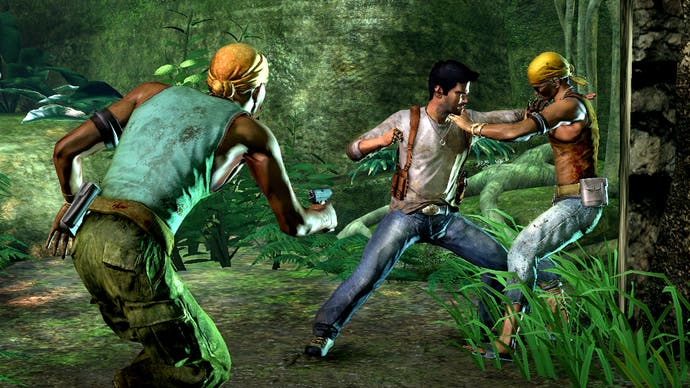
"Emotional realism is about creating characters you can buy into as real, down-to-earth, authentic people. They're not over-drawn, over-the-top cartoon characters," says Hennig.
"The characters aren't photo-real, but they're still pretty believable. We wanted to find that mark between too iconic, too cartoony and too photo-realistic, and we're really happy with where we ended up."
Emotional realism is about how the characters behave along with how they look. If Nathan mistimes a jump, he stumbles. If guns are being fired at him, he recoils. If a bullet ricochets off the wall next to him, he flinches. According to Hennig, the very human aspect of Uncharted's main character is one of the key distinctions between this game and Tomb Raider. But surely there are some similarities...
"Oh, sure. They're both drawing on the same inspirations, way back to Prince of Persia. But the main difference is the characters," she says.
"Lara, to me, is a James Bond type of character. She's larger than life, possessing perfect acrobatic skills, graceful... All the things Nate isn't. He's more a Bruce Willis or a Harrison Ford, somebody who's flat-out at the edge of their ability but perseveres. That doesn't mean one is a better choice than the other, but it's very different... Nate is extraordinary because he's ordinary. That's unusual in videogames."
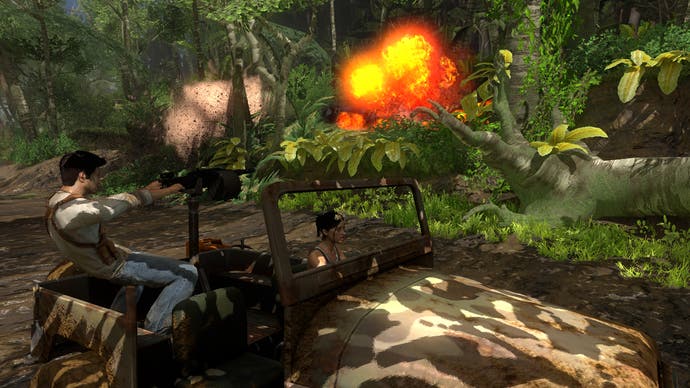
Nathan Drake isn't completely without acrobatic skills. He can jump long distances, hang off ledges and dive-roll behind cover. He's a skilled fighter, albeit one who trained on the streets rather than by frolicking around a country pile. "It's a down and dirty fighting style, with big, wild, off-balance haymakers, uppercuts, crosses, scissor-kicks... This is dirty fighting, and you've got to do what you've got to do," says Hennig.
Despite the range of moves at Nathan's disposal, the combat system isn't complex. Hands-on, the moves you pull off depend on the context you're in rather than the buttons you press. Approach an enemy from the front and press the square button and he'll unleash a volley of punches. Approach from behind and press the same button, and he'll snap their neck. It's not likely to satisfy beat-'em-up fans, but this is an action-adventure game after all.



